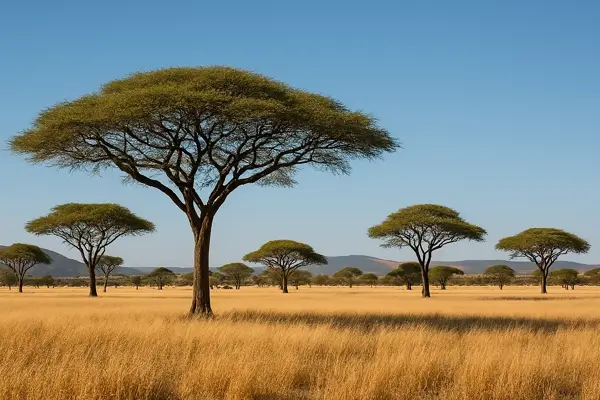
Home of Mount Kilimanjaro – Tanzania is home to Mount Kilimanjaro, the highest peak in Africa at 5,895 meters (19,341 feet). It’s a popular destination for climbers and adventurers.
Birthplace of Safari – The word "safari" comes from the Swahili language, widely spoken in Tanzania. The country is one of the best safari destinations in the world, offering the chance to see the Big Five.
Serengeti and the Great Migration – The Serengeti National Park is world-famous for the Great Migration, where millions of wildebeest, zebras, and antelope cross the plains in search of fresh grazing.
Zanzibar – The Spice Island – Off the coast of mainland Tanzania lies Zanzibar, known for its white-sand beaches, historic Stone Town, and spice plantations.
Lake Tanganyika and Lake Victoria – Tanzania borders both Lake Victoria (Africa’s largest lake) and Lake Tanganyika (one of the world’s deepest and longest freshwater lakes).
Cultural Diversity – Tanzania is home to over 120 ethnic groups, including the Maasai, Chaga, Sukuma, and Hadza, each with unique languages, traditions, and lifestyles.
Ngorongoro Crater – A UNESCO World Heritage Site, the Ngorongoro Crater is a massive volcanic caldera teeming with wildlife, including lions, rhinos, and elephants.
Olduvai Gorge – Cradle of Mankind – This famous archaeological site is one of the most important paleoanthropological locations in the world, where early human fossils have been discovered.
Swahili Language and Culture – Swahili (Kiswahili) is both the national and widely spoken language, reflecting a unique blend of African, Arab, and Indian influences.
Peaceful and Stable – Known for its political stability and friendly people, Tanzania is considered one of East Africa’s most welcoming countries for tourists and researchers alike.
